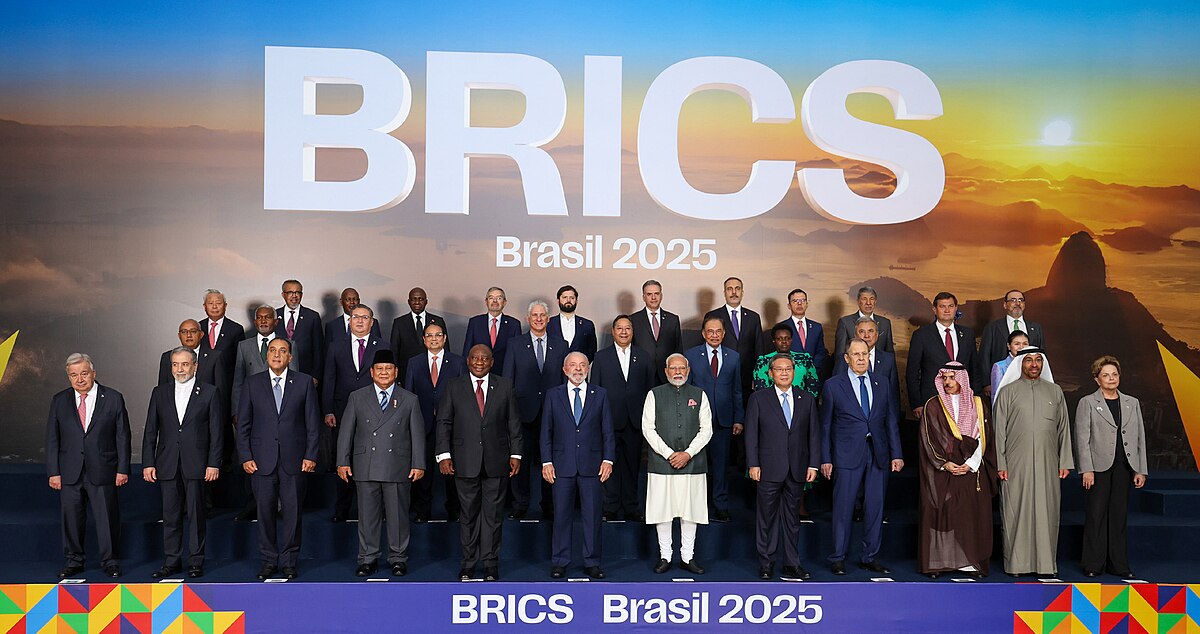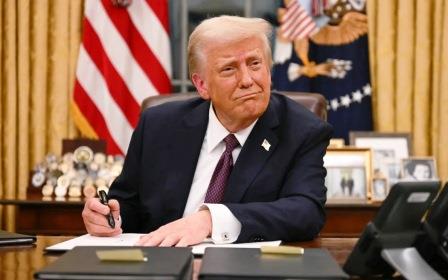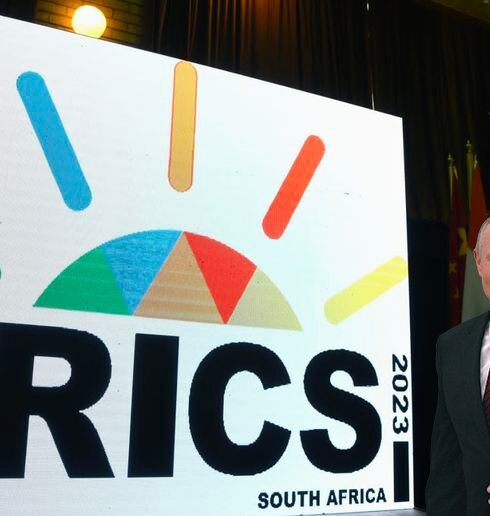
A group photograph of Members, Partners and Outreach invitees on the sidelines of 17th BRICS Summit at Rio de Janeiro, in Brazil. Credit: Reuters
At the recently concluded BRICS summit in Rio, the group – which sees itself as the voice of the Global South – is drawing in more and more African countries. But there are those who are starting to feel the move risks swapping one form of dominance for another.
In Africa, the pull of BRICS is clear. The thought is that BRICS is a very good alternative for countries in the South.
BRICS originally brought together four countries – Brazil, Russia, India and China – with South Africa joining in 2011. In 2024, the group expanded to include two more African members, Egypt and Ethiopia, as well as Saudi Arabia, the United Arab Emirates and Iran. Indonesia joined earlier this year.
Joining the BRICS alliance is not guaranteed. In 2023, Algeria’s president, Abdelmadjid Tebboune, made it a priority. “Algeria is interested in BRICS because it represents an economic and political power,” he said. But Algeria’s bid was ultimately rejected. The failure was put down to Algeria’s lack of economic diversification and heavy dependence on hydrocarbons.
Since then, BRICS has set up a club for partner member countries. On the African side, Algeria, Nigeria and Uganda have joined this satellite group – seen as a waiting room for possible full membership.
The reasons for joining vary: diversifying trade partners; strengthening South-South cooperation; gaining access to alternative funding sources, especially through the BRICS’ New Development Bank (NDB). Since its creation in 2015, the NDB claims to have invested $40bn in over 120 projects. But so far, under Dilma Rousseff’s leadership, it has funded none in Africa, with money mostly going to the original five members.
In May, Algeria became the NDB’s ninth shareholder with a $1.5bn capital contribution. While the NDB presents itself as an alternative to the World Bank, its loans are seen as free of “political strings”, according to the several media houses in Algeria. The principle of respecting state sovereignty is particularly appealing.
“Recently, the US and the EU froze countries’ assets without a UN resolution. Uganda couldn’t remain just an observer and decided to join this new coalition,” said a high-ranking member of Uganda’s foreign ministry in January, explaining the country’s turn towards BRICS.
African countries also see joining BRICS as a chance to boost their influence.
There are also those who see it as a way to increase Africa’s weight on the international stage, given they feel they have no real say in the current world order, particularly in the elite global institutions like the IMF, World Bank and UN.
The current backdrop – with African debt at high levels and sharp cuts to development aid – could accelerate the shift. According to analysts, donor-country funding, mostly from the West, is expected to fall by 9% to 17% in 2025, after dropping 9% last year.
Could salvation come from BRICS, which accounts for 36% of global GDP and 45% of the world’s population? Behind their South-South solidarity rhetoric though, their approach seems much like that of the old colonial powers.
China, which alone makes up nearly half of BRICS’ GDP, has been Africa’s biggest trading partner for about 15 years. This trade relationship is marked by asymmetry, and that is something that hasn’t changed, at least not for now.
China’s exports are manufactured goods and equipment, while Africa’s are mainly raw minerals and agricultural products. Trade with the other original BRICS members follows much the same uneven pattern. It is hard to see how adding more African members would reverse this trend or spark massive investment from India, Brazil or Russia.
At the same time, China’s loans to African countries have fallen sharply. At the 2024 Forum on China-Africa Cooperation (FOCAC), Beijing pledged $50bn by 2027, including $29bn in loans, $11bn in aid and $10bn in investment. That is $10bn more than at the 2021 FOCAC, but it is far less than the sums seen in the 2010s.
Worse, according to a study by Africa Aid Now, a think tank group based in London which had its reports published at the end of May, since 2025, financial flows have turned negative – Africa as a whole is repaying more to China than it is receiving in new loans.
In a nutshell, joining the emerging economies’ club seems to offer limited economic benefit for Africa. But it does allow the continent to diversify its alliances and, with a dose of realism, may help it play the two big rival blocs against each other for better terms. How well African countries can get better terms for the benefit of their countries remains to be seen.






